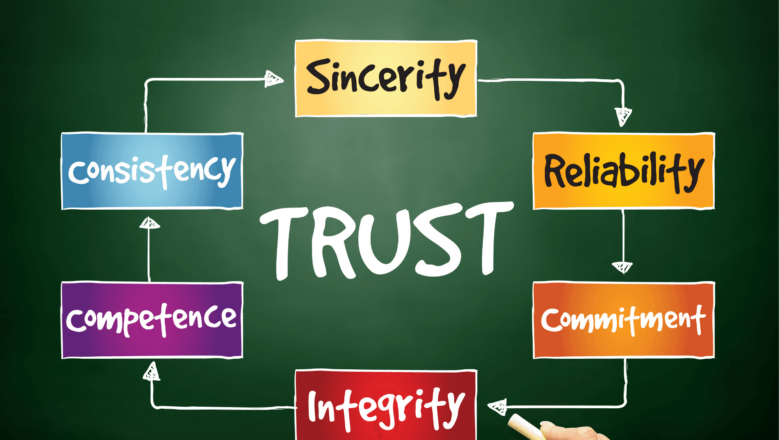Since its publication in 2002, Patrick Lencioni’s The Five Dysfunctions of a Team has become a classic in team-building literature, offering leadership lessons that remain as relevant today as they were.
At its core, Lencioni’s model highlights how a lack of trust can cascade into broader dysfunctions within a team, affecting everything from healthy debate to overall results.
If you haven’t seen this one in a while, it’s worth having another look. Then ask yourself, how are you building trust with your team?
The Five Dysfunctions of a Team
Leadership Lessons from Patrick Lencioni (2005)
1) ABSENCE OF TRUST
Trust is an essential component of high performing teams. Build greater trust by sharing personal experiences, showing vulnerability and being authentic. Team behaviours workshops, strengths development programmes and ongoing team learning sessions are great ways to break down barriers and create more trust.
2 ) FEAR OF CONFLICT
Lack of trust directly leads to a fear of conflict within organisations. Teams that can’t debate effectively work in a space of artificial harmony and ultimately make poorer decisions. Create a safe and open environment that encourages respectful debate and actively seeks out the opinions and perspectives of others.
3) LACK OF COMMITMENT
The result of less open debate is poorer levels of commitment and buy-in. When people feel their
voices have been heard and their opinions considered, they are more likely to engage in the outcome. Communication of the end decision and a cascade of messages is important to ensure deeper understanding and commitment.
4) AVOIDANCE OF ACCOUNTABILITY
If people haven’t bought into the plan, they will be less accountable as a result. A clear understanding of accountability (who, what, when) and an agreement of behaviour expectations is important to enable teams to self-regulate. Publish goals, hold regular team reviews and celebrate success.
5) INATTENTION TO RESULTS
If team members are not held accountable for their actions and results, they will quickly lose focus and motivation. This breeds a culture of self advancement to the detriment of overall team performance. Set a focus on team results in the business and promote and recognise team achievements. Agree as a team what constitutes poor behaviour and deal with this quickly.
If it’s been a while since you read Lencioni’s book, The Five Dysfunctions of a Team, now is the perfect time. It always offers something new for the reader. It also makes a great book review read for a senior leadership team.
How are you fostering trust and open communication in your team?
What steps are you taking to avoid these common dysfunctions and build a high-performing, accountable, and results-driven team?
If you want to build greater levels of trust, connection and accountability within your team, the PAUSE Team programme could be the perfect fit.
